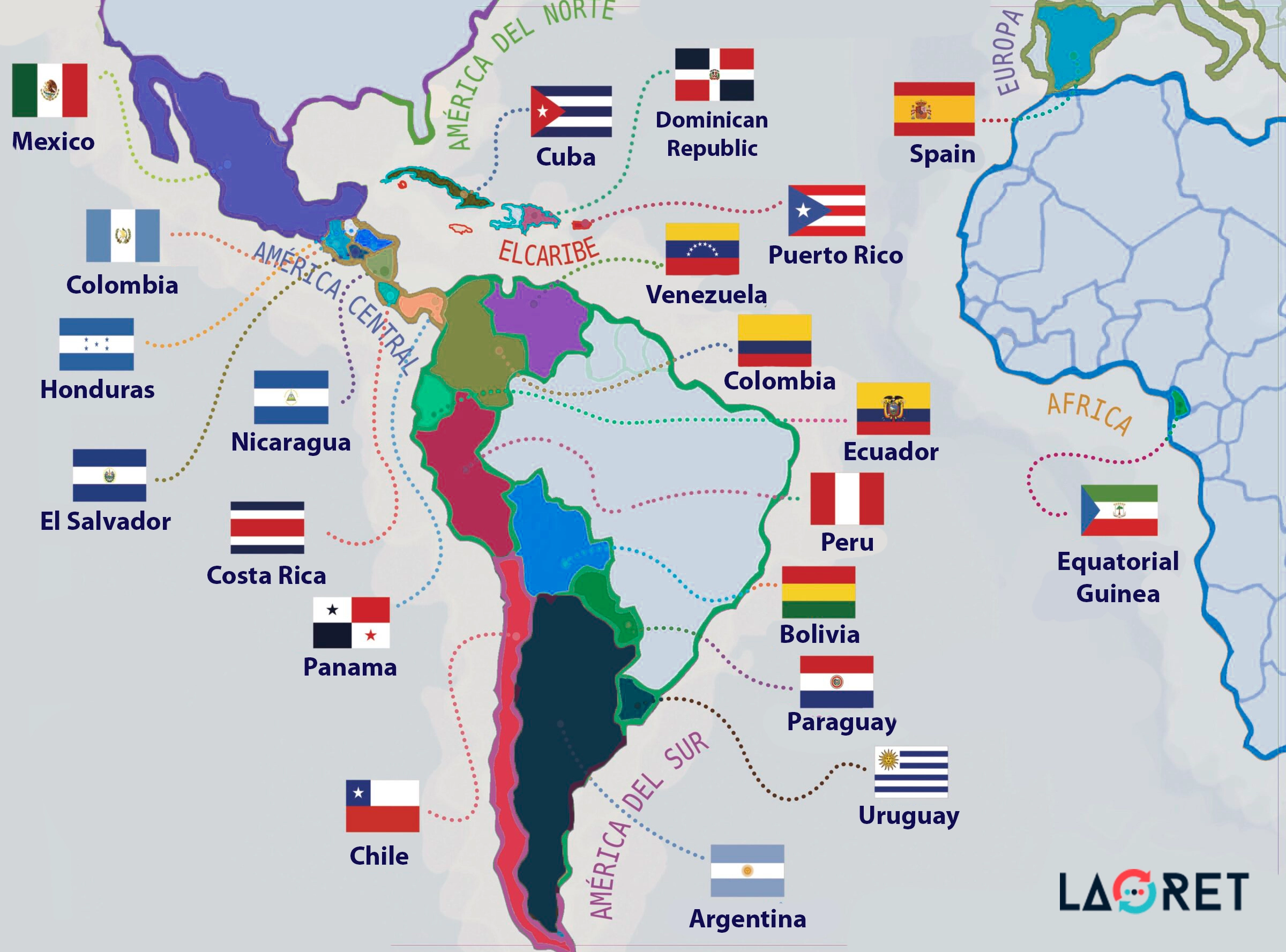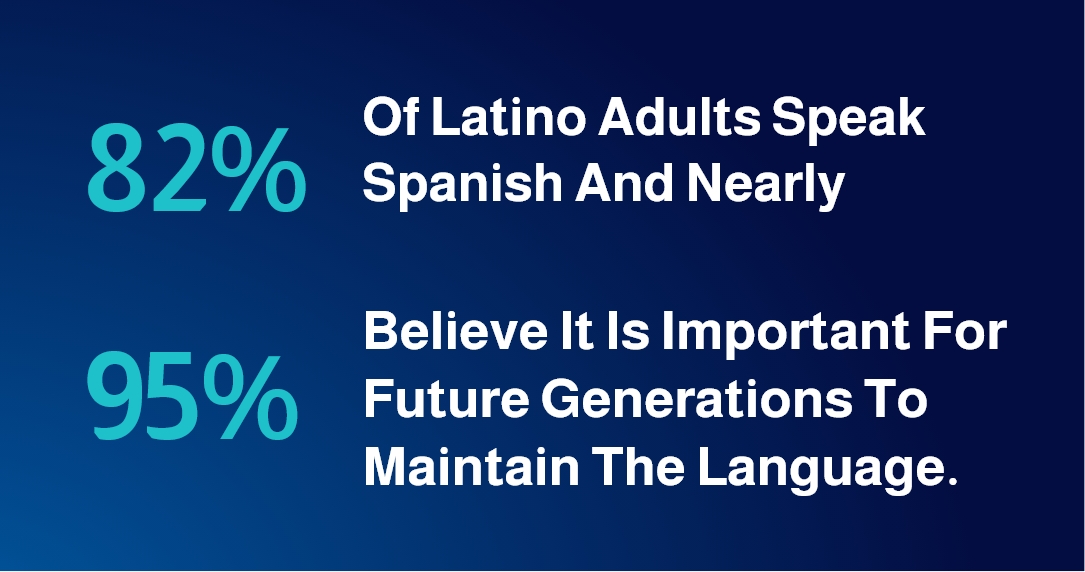The Ultimate Guide to Spanish Interpretation Services
Spanish is the third most spoken language in the world and the official language of 21 countries with a total of over 450 million native speakers.
As a result, businesses targeting Spanish-speaking countries have the potential to reach a significant and growing consumer base. A crucial aspect of this localization is providing Spanish translation and interpretation services, which can increase sales while also improving customer satisfaction.
But as in many languages, Spanish comes in many dialects with differences in vocabulary, grammar, and accent. This article is a complete guide to help you understand more about the requirements of Spanish interpretation before you decide to partner up with a language service provider.
What Spanish Do You Speak?
Deriving from Latin, together with Italian, French, Portuguese, and Romanian, modern Spanish evolved in different continents with the passing of time.
There are 5 main types of Spanish. First, there’s the European Spanish spoken in Spain which is called Castilian. Within Spain itself, there are distinctive dialects such as Andalusian and Canarian Spanish.
Secondly, Latin American Spanish, which changes from one country to another, not only in pronunciation but also in vocabulary and colloquialisms.
South America, Cuba, Puerto Rico, and the Dominican Republic have developed Caribbean Spanish which is one of the most difficult dialects for Spanish speakers of different regions to understand.
Moreover, Argentina and Uruguay also have another distinct accent and vocabulary called Rioplatense Spanish. And lastly, in Africa, Equatoguinean Spanish has adopted a lot of elements from the local languages.
It’s worth noting that even though there are many different variants most Spanish speakers are typically able to understand one another when speaking. But these differences are of utmost importance if you’re trying to adapt to a local market.
Spanish Language Market
21 Spanish-speaking Countries:
- Spain
- Mexico
- Colombia
- Argentina
- Peru
- Venezuela
- Chile
- Ecuador
- Guatemala
- Cuba
- Bolivia
- Honduras
- El Salvador
- Paraguay
- Nicaragua
- Costa Rica
- Panama
- Dominican Republic
- Puerto Rico
- Uruguay
- Equatorial Guinea

- Spanish is One of the 6 Official Languages in the United Nation
- Spanish is the Second Official Language
- Belize
- Guinea-Bissau
- Spanish is the Second Most Spoken Language in
- United States
- Philippines
- Equatorial Guinea
- Honduras
- Belize
- $2Tn, The Spending Power of Hispanics in the United States (Claritas, 2021)
- Spanish Interpretation Services is a Legal Obligation in Healthcare and Legal Sectors in the United States.
Examples of Differences that Spanish Interpreters Must Master
The differences in pronunciation, vocabulary, and grammatical rules are three key elements that distinguish the various types of Spanish. Professional interpreters should be familiar with these differences and follow them accordingly.
Just to put a few basic examples, in Castilian Spanish, the letters “z” and “c” can be pronounced as “th”, while in Latin America, they are pronounced as “s”. However, in the Andalusian region of Spain and the Canary Islands, “s” is pronounced in a lisping manner.
In Spain, when addressing a group of people, they use “vosotrosâ€, meanwhile, in Latin America, the word is not common at all. There they use “ustedes†for both plurals and to express formality, which in Spain is only used to show formality when addressing an individual.
Finally, the pronunciation of “y” and “ll” differs greatly in Latin America. In Mexico, they sound more like “sh”, while in Rioplatense Spanish, it sounds more like the “zh” sound.
Proper accent and pronunciation are critical in medical and legal fields because precision is essential in avoiding misunderstanding. Thus, it is important for interpreters to have a good command of the type of Spanish they’re interpreting and make sure the message is effectively conveyed.
The Advantages of Hiring Spanish Interpreting Services
Surveys indicate that the majority of Spanish speakers prefer to be addressed in their native language. This consideration plays a crucial role in their purchasing decisions and contributes to building brand loyalty.
In the United States, Spanish speakers come from diverse cultural backgrounds, but they share a strong connection to the Spanish language. According to Pew Research, 82% of Latino adults speak Spanish and nearly 95% believe it is important for future generations to maintain the language.

Key Benefits of Offering Spanish Interpreting Services
- Increased sales by converting more leads into customers
- Increased exposure by adapting content to Spanish speakers with limited English proficiency
- Appeal to customers through culturally appropriate messaging
- Increase customer satisfaction
- Meet compliance regulations in the healthcare and legal sectors
Download our comprehensive checklist
Here’s the complete list of local and international clinical research
regulatory bodies in the world.
Comprehensive Guide to Spanish Interpreting Services
After having discussed the many aspects of the Spanish-speaking market, now it’s time to go further into how actually interpreting services can be of service to your business needs.
Spanish Simultaneous Interpreting for Conferences and Meetings
Simultaneous Spanish interpretation services provide a real-time interpretation of Spanish speech into another language and vice versa. Here, the interpreter begins to interpret as soon as the speaker starts to talk, without any delay.
This type of interpretation is used in a variety of settings, including business meetings, conferences, and legal proceedings, to ensure that non-Spanish-speaking individuals can fully participate and understand the content being presented.
Simultaneous Spanish interpreters are highly skilled and trained professionals who have a deep understanding of the Spanish language and the other languages included. They must possess excellent listening and speaking skills, as well as an in-depth knowledge of both cultures and terminology.
Using these services, individuals and organizations can communicate effectively, fostering greater understanding and collaboration, regardless of language barriers.
A type of simultaneous interpreting is escort or travel interpreting. Escort interpretation involves accompanying a client to a meeting, event, or conference and providing interpretation services wherever it is needed.
Virtual Spanish Interpreting Services for Remote Communication
Virtual Spanish Interpreting Services have skyrocketed recently because it has allowed people to communicate with one another in real-time, regardless of their location. Remote interpretation can be via phone or video calls and helps businesses around the world to connect with Spanish-speaking customers, suppliers, business partners, and more.
Moreover, virtual Spanish interpreting services are highly cost-effective compared to traditional in-person interpreting services. They eliminate the need for travel, accommodation, and other expenses associated with in-person interpreting services. Additionally, they offer greater flexibility, as they can be accessed from anywhere with an internet connection.
Telephone interpretation can be used in customer service, healthcare, and any other business to arrange appointments, deliver marketing messages, and other urgent and short communication. Video interpreting, on the other hand, can come in handy in bigger events when face-face interactions are not possible or guarantee inclusivity to people with hearing impairment.\
Sectors and Industries with High Demand for Spanish Interpreters
Spanish interpreting services are needed in a variety of industries and sectors, including:
- Healthcare: Spanish interpretation services are crucial for medical professionals to bridge any language gap between them and patients and ensure that the issue, symptoms, and treatment are accurately communicated. Medical interpreting services require interpreters with subject-matter expertise since it has direct consequences on human health.
- Business: Having an interpreter when dealing with Spanish-speaking clients, suppliers, or partners facilitates cross-cultural communication and business dealings.
- Tourism: By providing interpreting services in hotels, restaurants, and tourist sites, you can guarantee your Spanish-speaking guests have a safe and remarkable experience.
- Legal: Spanish interpretation services are a legal requirement for people with limited English proficiency, or any other local language. Sworn and professional interpreters should be present and accompany individuals in court proceedings and legal consultations.
These are just a few examples of industries and sectors that require Spanish interpretation services. The need for these services continues to grow as the Spanish-speaking population increases globally together with the need for global communication.
Main Factors to Consider Before Hiring Spanish Interpreting Services
- Type of interpretation needed: Depending on your specific needs you should decide if you need virtual, in-person, or escort interpreting services. The LSP can provide you with a comprehensive virtual interpreting checklist to help you plan out your next event.
- Qualification and experience of the interpreter: Even though Spanish people can understand one another, it’s still important to choose native interpreters with subject-matter expertise.
- Accreditation and quality assurance process: Beyond the proper training for Spanish interpretation, the team of interpreters must have experience and be qualified enough to work in the field, especially within technical ones such as medicine, law, and technology.
- Cost, availability, and turnaround time: Spanish translation and interpretation costs are quite affordable, but oftentimes it depends on the language pair combination. Also, you can use virtual interpreting services only when you need them, and you don’t have to pay for the interpreter’s accommodation or commute to and from your facilities.
- Legal and ethical considerations: Be aware of any legal or ethical considerations, such as confidentiality and data protection, and make sure the interpreter is well-versed in the ethical code.
Conclusion
As the third most spoken language in the world, the Spanish-speaking market craves information and communication in its native tongue. Virtual interpreting services can help you reach any Spanish speaker anywhere in the world. Laoret provides on-demand, native Spanish interpreting services in a variety of settings, including business meetings, conferences, hospitals, courts, and tours. Request a quote today and let us handle the rest.
References
- Statista: The world’s most spoken languages
- World Data: The world’s largest economies
- Internet world users by language
- The 10 Largest E-Commerce Markets in the World by Country
- English levels in China
- The most used languages on the internet
- China: Language simplification to increase literacy?
- The main differences between Mandarin and Cantonese
- The Spanish language in the world
- Internet world users by language
- The U.S. Has the Second-Largest Population of Spanish Speakers—How To Equip Your Brand To Serve Them
- Parker pens make you pregnant, and other due diligence fails!
- Arabic Speaking Countries
- Arab economies to post 5.4 percent growth rate this year on higher oil prices
- More Arab countries are seeking to orient their economies towards knowledge
- Individuals using the Internet (% of population) – Arab World
- French speaking countries
- English Loses Currency as Europe’s Lingua Franca After Brexit Vote
- The rise of Africa’s digital economy
- Mechanical Engineering Industry in Germany: Our Industry Report
- Internet user penetration in Germany from 2018 to 2027






